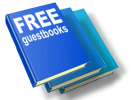The Best Self-Help Books
The 7 Habits of Highly Effective People by Stephen Covey
Convey focuses on the 7 habits of highly effective people by looking at personal and impersonal effectiveness. It gives great advice on the steps to follow to achieve high effectiveness. He advocates the importance of focusing on the things that you can control instead of the things that you cannot. And how deciding more carefully about what you focus and dedicate time to will be life-changing. He then goes on to tell stories of real life situations to prove how these habits work. It gives positive direction for self-mastery and victory.
You Are a Badass: How to Stop Doubting Your Greatness and Start Living an Awesome Life by Jen Sincero
Jen Sincero takes you on a self-improvement journey throughout this book. She gives you all the information you need to be the best you! Sincero decided she wanted to change her life for the better so bought countless self help books to inspire her. This book brings together all of the best advice, tips and tricks that helped her become successful and fulfilled. It explores many positive habits to adopt that will benefit you massively. Such as practicing gratitude and forgiveness so you don’t take away any energy from focusing on yourself. It will help you if you’re not impressed with your life and don’t think you’re doing the best that you can do. She’ll explain ways to implement the ideas and refocus your energy to what’s important. The books main goal is how to get in touch with your inner badass!
The Subtle Art of Not Giving a Fuck by Mark Manson
This self-help book is different to the rest. It ironically goes against the notion that you should read lots of self-help books. Manson argues that reading too many might can make you obsess about whats negative about yourself and even cause low self-esteem. Despite the misleading title, the book doesn’t tell you to not care about anything though. The underlying message of the book is that everyone cares about something but you need to choose wisely about what those things are. He talks about how the failures and pain that you experience always lead to positives. Such as pain in the gym leads to a healthier and stronger physique. He argues that everything good in life comes through negative experiences. The principal message is that everyone needs to accept that negative experiences are inevitable and how to embrace them to move forward.
Big Magic by Elizabeth Gilbert
Gilbert gives her insights, practices and advice on how to live more creatively, mindfully and passionately. The book explores the positive impacts on living your life by focusing on courage instead of fear. She wants her readers to understand that the good always comes with the bad. You just have to weigh up what’s important enough to go through the bad. You’ve got to want it more than you’re afraid of it. Also, that you need to let go of perfection and what people think and follow your passions with dedication. She also states the importance of judging yourself on your dedication to your passions rather than the outcome or success. You shouldn’t focus on things that aren’t completely in your control. Don’t let fear and failure take away the magic that you can create.
The Power of Positive Thinking by Norman Vincent Peale
This book talks about 7 main core lessons that will help you master positive thinking. Peale discusses the importance of positive thinking and the huge impact it has on your life. He suggests that believing in yourself and what you’re capable of is what will lead to success. It all starts within the mind. If you expect the best instead of the worst then you will get the best. He explains how we are not born with worry, it’s a bad habit that we’ve picked up along our journey and we need to let it go. If you believe in the law of attraction it will bring anything you want to you. And also to stand up to your obstacles and fight them, they won’t be nearly as strong as you think. Otherwise you’ll just go through life half defeated and broken down. His main message is to practice faith instead of worry.




